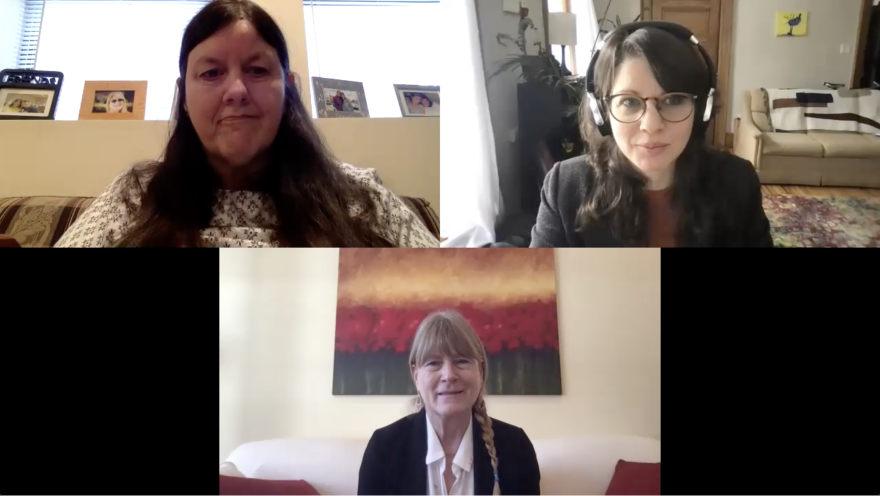Over the course of the coronavirus pandemic, Tia Nelis of TASH, a national advocacy organization for disability inclusion, has been the facilitator of a weekly, sometimes international, video call among people with disabilities.
As part of this week's Dialogue on Disability, WXXI’s Noelle Evans talked to Nelis about the significance of those calls during a confusing and often fearful time. Below is a transcript of their conversation, edited for time and clarity.
Tia Nelis, TASH self-advocate:
“It’s called a coffee break, and it started out with the COVID-19 response where people with disabilities were feeling lonely and not having anybody to talk to in some of the cases. So we thought it was important that people could get connected together."
Noelle Evans, WXXI reporter:
“What comes up in those calls? What’s discussed?”
Nelis:
“Well, at first it started out with COVID. People unfortunately are losing family members or friends, and they talk about that. They express that during the coffee break how ‘my sister died’ or ‘my friend is in a coma,’ and fortunately for that person, the friend is out of the coma now, but he has a long way to go for rehab.' But people talked about that. And they tend to support each other around different topics.
"Now people talk about many different parts of their lives. One week, we talked about employment and what employment was. And one of our, used to be our TASH interns, was talking about employment and the things he wanted to do. Well, it just so happened that another person from Kansas City was on the phone and said, ‘Well that’s interesting, maybe we should talk about that after the call.’ And it ended up that he got a job."
Evans:
“Hmm. So in regards to who shows up to the calls, what’s the representation look like?”
Nelis:
“You know, there’s a variety of different people, different disabilities. You know, some people don’t speak English all the way, but they participate, they feel welcomed, they keep coming back on. Some people use their iPads to speak or something. We use the chat at times a lot if we can’t really understand, and they type their question in or participate that way. One of the things that is really good is they support each other and help each other."
Evans:
“Sure. Now, I think as we’ve seen, the pandemic has been affecting various populations quite differently. Are you seeing that with people in those calls if they are Black, Hispanic, Indigenous, people of color? Are you hearing stories from them?"
Nelis:
“There are a lot of people with disabilities that are really scared that are Black and Hispanic and they don’t get the right information, you know, even more so than other people with disabilities, because of the language barrier, because of discrimination. And I’m hoping that we can advocate to make those changes. Because everybody needs that information and needs to be given the same opportunity as everybody else to get that shot when they need it to have that information accessible.”
Evans:
“From these conversations, what is it that people need right now that they’re not getting, and what’s going well?”
Nelis:
“They need more access to technology right now more than ever. They need that access. They need support once they get the technology on how to use that technology to be able to connect to people. They need information about COVID in accessible languages, in accessible pictures, easy to read. They need that. They need to know that people care about people with disabilities, that they want to make sure that they get their rights and the things that they want in their life just like everybody else. And they need to have places where they can feel comfortable to talk to people about that.”
TASH's Self Advocate Coffee Breaks meet at 3 p.m. ET Fridays over Zoom. Click here to learn more and register.
This story is part of Dialogue on Disability Week -- a partnership between WXXI and Al Sigl Community of Agencies -- in conjunction with the Herman and Margaret Schwartz Community Series.



